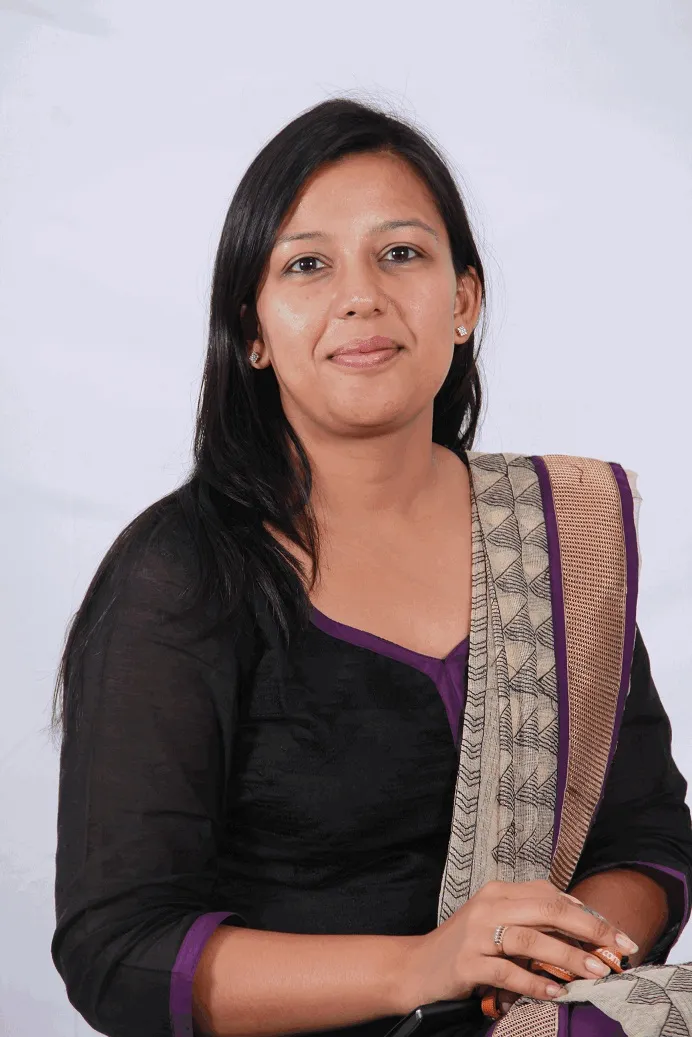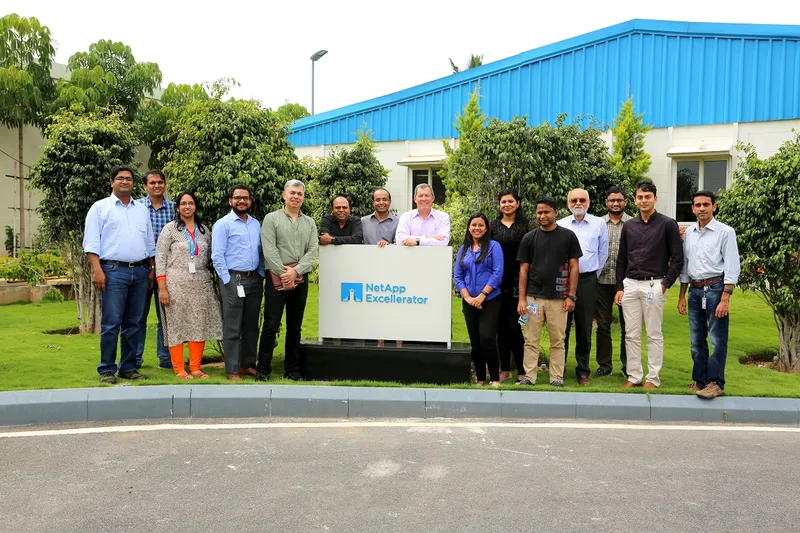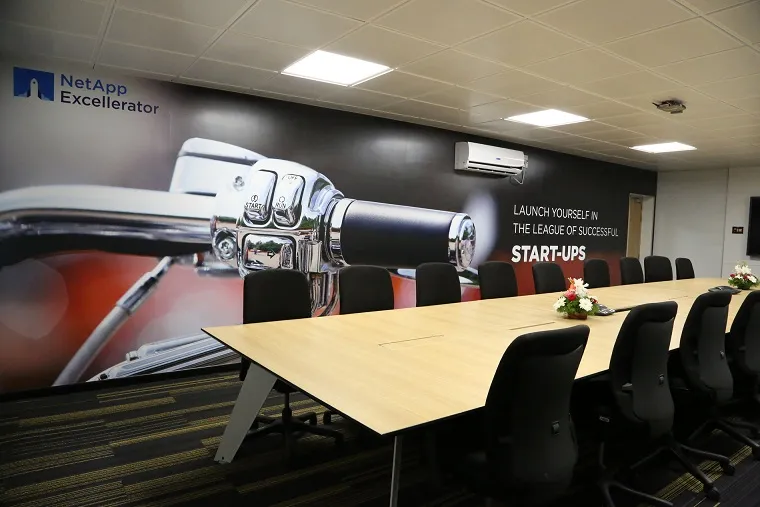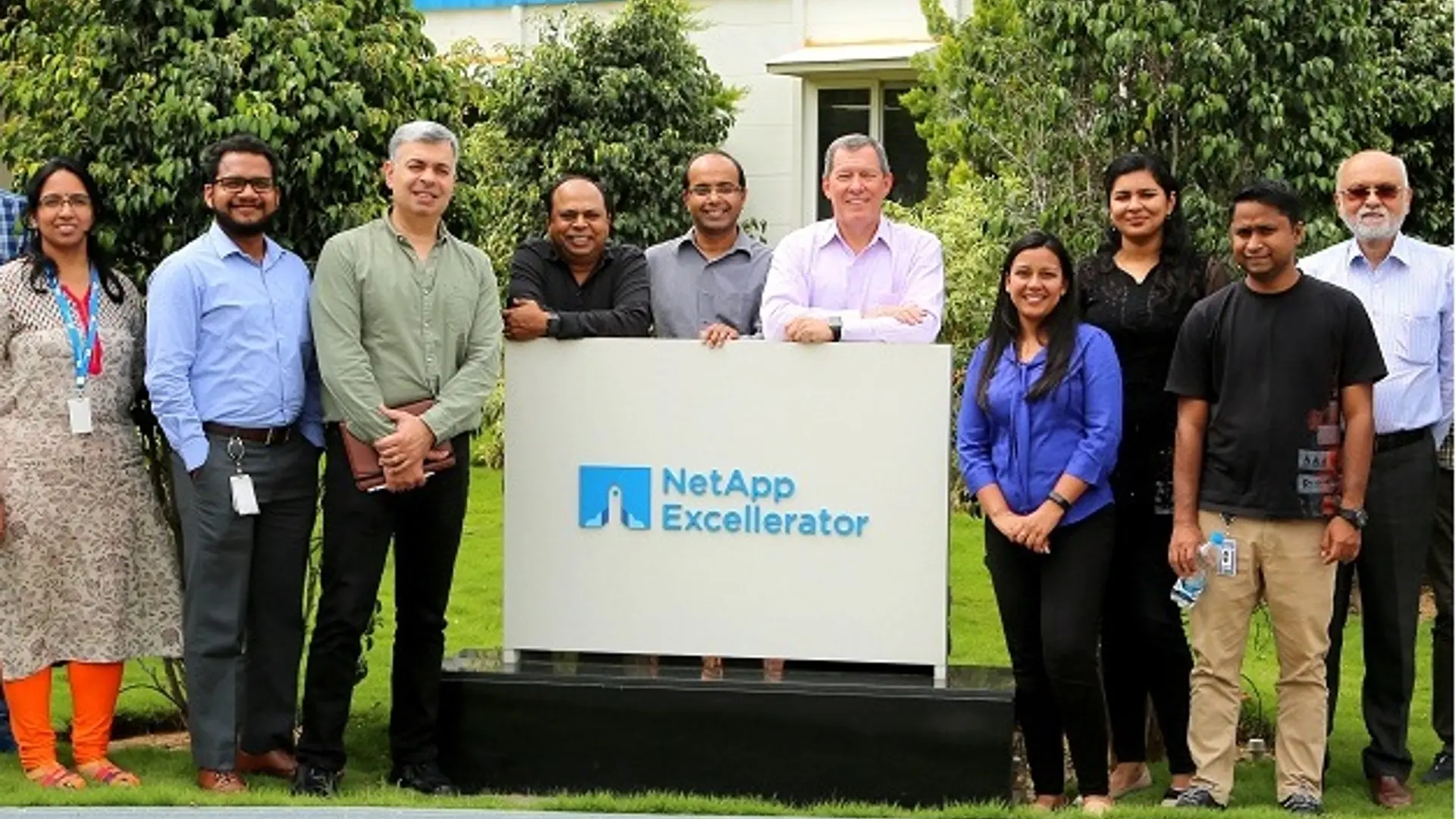‘B2B startups in India are making inroads in enterprise space’ — Madhurima Agarwal, NetApp Excellerator
NetApp accelerator’s recent demo day featured startups in AI, data security, automation, video analytics, e-health and legal workflow. The accelerator model can help them win corporate customers.

This article is part of the YourStory series Startup Hatch, about incubators, accelerators and makerspaces in the startup ecosystem. See earlier profiles of initiatives at IIT Bombay, IIM Bangalore, BITS Pilani, NCL, Tata Elxsi, Axilor, NID, IIIT-Bangalore, IIIT-Hyderabad, Vellore Institute of Technology, PSG Coimbatore, Workbench Projects, Makers Asylum, Appy Hours, Turning Ideas. Ashoka Innovators, and Startup Leadership Programme.
Madhurima Agarwal is Senior Manager at NetApp Excellerator. She has over 14 years of experience, spread across enterprises and startups. She was the Director for Corporate strategy at CommonFloor. Madhurima is an alumna of IIM, Ahmedabad.
She worked in London as well as in India with renowned financial firms such as Goldman Sachs and Fidelity Investments. She is an ex-entrepreneur and has donned the hat of a mentor, advisor and investor for various startups. NetApp’s product releases are driven by Ajeya Motaganahalli, Director, Engineering Programmes.
Madhurima joins us in this interview with updates on the journey, accomplishments and messages of NetApp Excellerator.
YS: What was the founding vision of your accelerator, and how is it supported?
MA: NetApp launched this programme with the sole intention of fostering innovation in our ecosystem. We were a startup once and we would like to give back to the ecosystem in the best way we can. We would like to shorten the innovation cycles of these startups based on the experiential journey we have undergone ourselves
YS: Which startups have graduated from your accelerator so far?
MA: We had the Demo Day for our first batch on December 12. Here are profiles of some of the startups:
Adya is a SaaS data security platform that helps companies protect their data from insider theft and from ransomware. It has a ‘cloud scale real-time learning engine’ that analyses events from data sources in real-time and provides alerts in case of abnormal behaviour.
Enclouden is focussed on automating IT infrastructure on a private cloud/VDI solution. It provides automated self-healing and self-managing properties to manage, monitor, and secure distributed IT systems.
Lightmetrics is developing software for ADAS and video analytics to make driving safer and better understand driving behaviour. Its hardware agnostic SDK enables it to work on a range of devices like smartphones, tablets, and dash cameras.
Scalend Insights Application is an AI-enabled platform that tracks customer interactions real-time across multiple channels. It cleanses and integrates data, allowing prediction of customer’s behaviour and actions.
Vaultedge automates legal workflows using artificial intelligence so that lawyers can focus on high value tasks. It can extract clauses as well as relevant data points, and provides categorisation of contracts.
VitaCloud is a digital health platform that empowers physicians to manage chronic diseases remotely, using connected technology, data and the human touch. Its ‘Internet of Medical Things’ (IoMT) platform combines variables about biometric vitals, food, physical activity, and medication, and maps the relationship between lifestyle, metabolic risk factors, and chronic diseases.

YS: What would you say are the top three opportunities for Indian entrepreneurs?
MA:
First, building world class products for the huge Indian population with a unique demography.
Second, delivering solutions to global enterprise scale challenges (I see more and more B2B startups quietly making inroads in the enterprise space).
Third, riding on the momentum that the government is creating for a digital India.
YS: What are the key challenges faced by startups in India, and how can you help bridge the gap?
MA:
- Understanding enterprise scale: This is one of the problems most B2B startups face as they try to scale their solution from an SME to enterprise scale. NetApp helps startups on the technical and business side to build their products and strategy in such a way that they are scalable and can cater to an enterprise’s needs.
- Access to customers: Enterprise sales can be long and getting to the right person to speak to can itself take months. NetApp partners with select startups and helps them shorten the cycle by getting access to the right person to talk to early on.
YS: What is the selection criteria for startups in your accelerator?
MA: There are multiple parameters we look at, of which the team is primary. We look at the quality of the team. The stage and idea are also important parameters. Also, we are very mindful of the fact that the startup should be in an area where NetApp can add value.
YS: How would you differentiate your accelerator from the other accelerators in the field?
MA: We provide mentoring, access to customers, investor connects, co-working space and a grant of equity-free $15,000. With NetApp’s rich history of innovation and expertise in data management, we are providing startups the right mentorship — both technical and business. Additionally, we get best-in-class global industry experts to help them define their business strategy and focus.
Our B2B accelerator programme has been designed to help startups create innovative world-class products and solutions that are market-ready. The programme enables startups to use NetApp expertise and its ecosystem of partners, subject matter experts and customers to realise the maximum potential of their innovative ideas.
YS: What would you define as success for your accelerator?
MA: I consider the NetApp Excellerator to be successful if the startups in our cohort succeed. Success for the startups can mean any or all of three things: getting customers, raising investment, and making significant improvements in their product offering.
We just completed the first cohort and are thrilled with the success the startups have achieved. In the first cohort of the six startups, I am excited to share that we have seen success across all three aspects. One of the startups has raised an angel round, another is in the middle of a VC round.
Two have pivoted and created a strong product that is finding lot of traction in the global market; almost all have had multiple customer introductions and are progressing rapidly with GTM. One startup has become a NetApp Alliance partner, which is a coveted status.

YS: How do you compare and contrast India’s accelerators with that of other countries such as the US and China?
MA: We looked at a lot of accelerators abroad and feel that we are at par with the global accelerators. A key difference, though, is having a fund and taking equity stakes.
The ecosystem as a whole affects the kind of exposure the startups get, and I have definitely seen huge strides being made in that space. More MNCs are opening up accelerators or innovation centres in India.
YS: What are your recommendations for Indian policymakers to make business easier for accelerators, investors, researchers and startups in India?
MA: Having a think tank that comprises leading accelerators and investors is imperative. They are the people who engage with startups at all stages and understand the long-term impact they can have on the economy. Combining enterprise experience with investment acumen is a win-win and can add a lot of value to startups.
I would suggest looking at Israel where the government has some extremely accelerator friendly policies, and invests in setting up accelerators. They also help the startups get revenues by licensing their IP or enabling exits. Such measures can be a game changer for the startup scene in India.
YS: What are your recommendations or words of inspiration to the startups and entrepreneurs in our audience?
MA: The world is changing, and the pace of change is faster than ever, and it is being driven by startups. The entrepreneurs are disrupting the world, and now is the most conducive environment to be an entrepreneur in.
It can be fairly lonely being an entrepreneur, but it is the focus and grit that keeps you going. There will be a hundred voices throwing advice at you, but listen to your heart (of course don’t leave your brain behind!) and you shall prevail.




